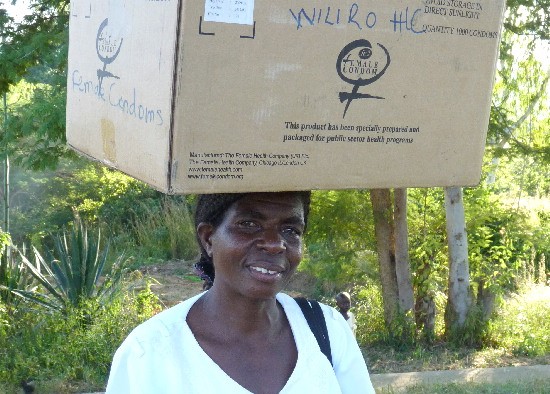There are five days in fundraising week, but there’s only one human rights day per year. What better day to write about fieldwork? We came out of our assessment work with some stories of incredible inspiration. For example, in the face of nation-wide stock-outs, Kayelekera’s HIV programming protected local residents from drug shortages and never ran out of antiretroviral treatment (ART).
We conducted monitoring visits in Tanzania and Malawi, and we took the initial steps to begin an assessment of a fish farm in Chile. We found that the UN was right to define HRIA as “ongoing” … (more on that below) We are publishing a forthcoming paper on longitudinal HRIA using data and insights from Kayelekera, which is the only mine in the world with a half decade of publicly available human rights reporting.
Our findings in Malawi are exposing the unforeseen challenges in assessment, because contextual conditions have become so inadequate that project interventions cannot possibly meet human rights standards. Publishing on this topic has two aims. First to encourage companies to look at their operational contexts in real-time and stay nimble (Paladin did this, to some extent, hiking wages for workers when inflation became impossibly high, and setting a timeline for additional wage reviews based on short- and long-term currency fluctuations). Second, this work may provide companies with a tool for demonstrating to governments, activists and their own communities how they are coping with the changes in human rights conditions.
If you want to know more about the travesty that is Malawi, read on…
If you just want to click here to donate, that’s cool too.
Between 2011 and 2012, Malawi fell off the shooting star it was riding out of poverty. In March 2011, a tsunami hit Japan’s nuclear reactors, causing a nuclear disaster at Fukushima that triggered a global collapse of the uranium market; Kayelekera became a revenue-negative mine.
The following month, President Mutharika evicted the UK envoy from Malawi; the UK revoked US$ 49 million in aid to the country in response, 39% of which funded the public health sector. The African Development Bank, the World Bank, the EU, Germany and Norway also withdrew aid, citing corruption. The corruption scandal coincided with a foreign exchange crisis associated with a poor harvest and low tobacco prices in 2011 that significantly reduced Malawi’s exports.
Without foreign exchange, the country could not purchase fuel, causing public transport costs to increase and side-lining emergency transport throughout the health system. The poor harvest was not met with a decline in grain exports; the state-owned grain marketer offered deflated prices for maize, so farmers opted instead to sell to cross-border traders. An in-country food shortage resulted in wild food inflation. In July 2011, public protests against rising prices and fuel shortages were quashed with live bullets.
President Bingu Wa Mutharika’s troops killed 18 and injured 41 protesters. Reporters were beaten. Grain prices didn’t drop. Throughout the summer of 2011, the economic slowdown was accompanied by stock-outs of essential medicines, including ART (for treating HIV), owing largely to distribution chain problems (compounded by lost aid dollars). In that time, the Global Fund rejected several proposals by the Malawi national AIDS program, which is 90% externally funded. In April 2012 President Mutharika died of a heart attack, months after ousting his vice president in a move to support his brother’s bid to succeed him in office. Mutharika died in a Malawian hospital but his brother’s supporters concealed his death, shipping his corpse to South Africa for “treatment” to buy time for maneuvering to take over the office of president. The plot was exposed, the brother tried with treason, and the ousted vice president, Joyce Banda, installed in office, but currency instability persisted, resulting in inflation rates peaking at nearly 45% in 2012 before slowly declining throughout 2013.
So here we are at the end of 2013, and maize is still 4 times more costly than it should be, the aid dollars Banda managed to secure have slipped through her fingers with the exposure of “Cash Gate” — an enormous corruption scandal I described earlier this year.


